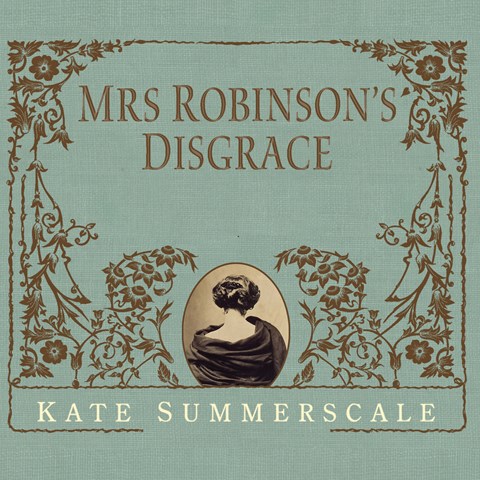


Her husband is a controlling bully in true Victorian paterfamilias style, often absent from the home and, one suspects, from the marital bed. This is the true story of Isabella Robinson, a frustrated mother and wife with, evidently, too much time on her hands. I had the same problem with The Suspicions of Mr. Summerscale's deadpan reporting voice has the happy effect that the author disappears from the narrative leaving the characters to speak for themselves, but this also means you have to get to know the characters before you can get engaged so the first 50 pages can be tough. I'm sort of hovering between 4 and 5 stars for this one, but I'm settling for 4 because it took me a little while to get into this book. Where I got the book: e-ARC from NetGalley. Whicher, Kate Summerscale brilliantly recreates the Victorian world, chronicling in exquisite and compelling detail the life of Isabella Robinson, wherein the longings of a frustrated wife collided with a society clinging to rigid ideas about sanity, the boundaries of privacy, the institution of marriage, and female sexuality. Their trial would be a cause celebre, threatening the foundations of Victorian society with the specter of "a new and disturbing figure: a middle class wife who was restless, unhappy, avid for arousal." Her diary, read in court, was as explosive as Flaubert's Madame Bovary, just published in France but considered too scandalous to be translated into English until the 1880s.Īs she accomplished in her award-winning and bestselling The Suspicions of Mr. Until that year, divorce had been illegal in England, the marital bond being a cornerstone of English life.

Aghast at his wife's perceived infidelity, Henry petitioned for divorce on the grounds of adultery.

One fateful day in 1858 Henry chanced on the diary and, broaching its privacy, read Isabella's intimate entries. Over five years the entries mounted-passionate, sensual, suggestive. No doubt thousands of Victorian women faced the same circumstances, but Isabella chose to record her innermost thoughts-and especially her infatuation with a married Dr. But Henry traveled often and was cold and remote when home, leaving Isabella to her fantasies. A successful civil engineer, Henry moved them, by then with two sons, to Edinburgh's elegant society in 1850. Her first husband had died suddenly, leaving his estate to a son from a previous marriage, so she inherited nothing. Headstrong, high-spirited, and already widowed, Isabella Walker became Mrs. "I think people marry far too much it is such a lottery, and for a poor woman-bodily and morally the husband's slave-a very doubtful happiness." -Queen Victoria to her recently married daughter Vicky


 0 kommentar(er)
0 kommentar(er)
